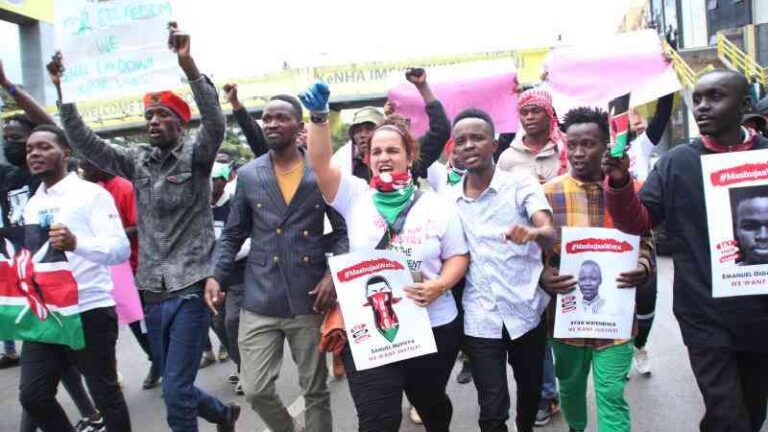
A growing chorus of disillusioned Generation Z Kenyans is accusing the country’s political class of betraying their movement for accountability, trading noble ideals for political favours and financial gain.
What began as a bold wave of youth-led protests last June—spurred by outrage over unpopular tax hikes and demands for transparency—has now, according to critics, been hollowed out. Emerging voices say the political establishment infiltrated the movement, co‑opted its energy, and diluted its demands .
In scathing commentaries published by Standard Media, analysts warn that opportunistic politicians have become puppeteers, dangling crumbs of power and influence to keep the youth aligned with their own agendas. As one piece put it, “Umoja ni nguvu…until someone waves a few shillings in the air,” a betrayal that echoes biblical treachery.
The consequences have been profound:
- Identity Crisis: Gen Z’s movement, once heralded for being “tribeless and leaderless,” has splintered. Internal divisions have emerged as veteran politicians moved in, turning principled activism into ethnic posturing, critics say.
- Unequal Gains: Instead of reforms, the unity of youth has fractured. Leaders aligned with the establishment grabbed media attention and political appointments, sidelining grassroots activists demanding structural change.
- Momentum Lost: Having helped force the shelving of the Finance Bill and catalysed a historic Cabinet purge, Gen Z now faces the risk of becoming a defanged ally to the very status quo it protested—its voice co-opted and scattered.

However, not all hope is gone. A surge in youth registering political parties, including the Justice, Economic, and Civic Transformation (INJECT) movement, signals a push to reclaim agency on electoral turf. Experts argue this shift marks a turning point—Gen Z is learning that true power may require institution-building, not just street protests.
Yet, headwinds remain fierce. The same political insiders accused of betrayal are now reshaping policy narratives and positioning themselves for the 2027 elections, banking on feeble youth alliances to neutralize electoral threats.
As the youth regroup, two questions hang in the balance: Can Gen Z transcend its recent fractures and build lasting platforms? Or will Kenya’s old guard continue to trade youthful fervor for fleeting dominance?
The stakes could not be higher. Kenya’s emerging generation must decide: renew their fight for justice—and do it on their own terms—or settle for ceremonial roles in a rebranded but unchanged political order.
This is the legacy challenge Gen Z now confronts: Dare they rebuild—or forever be remembered as the generation that had its moment, only to watch it slip away?






